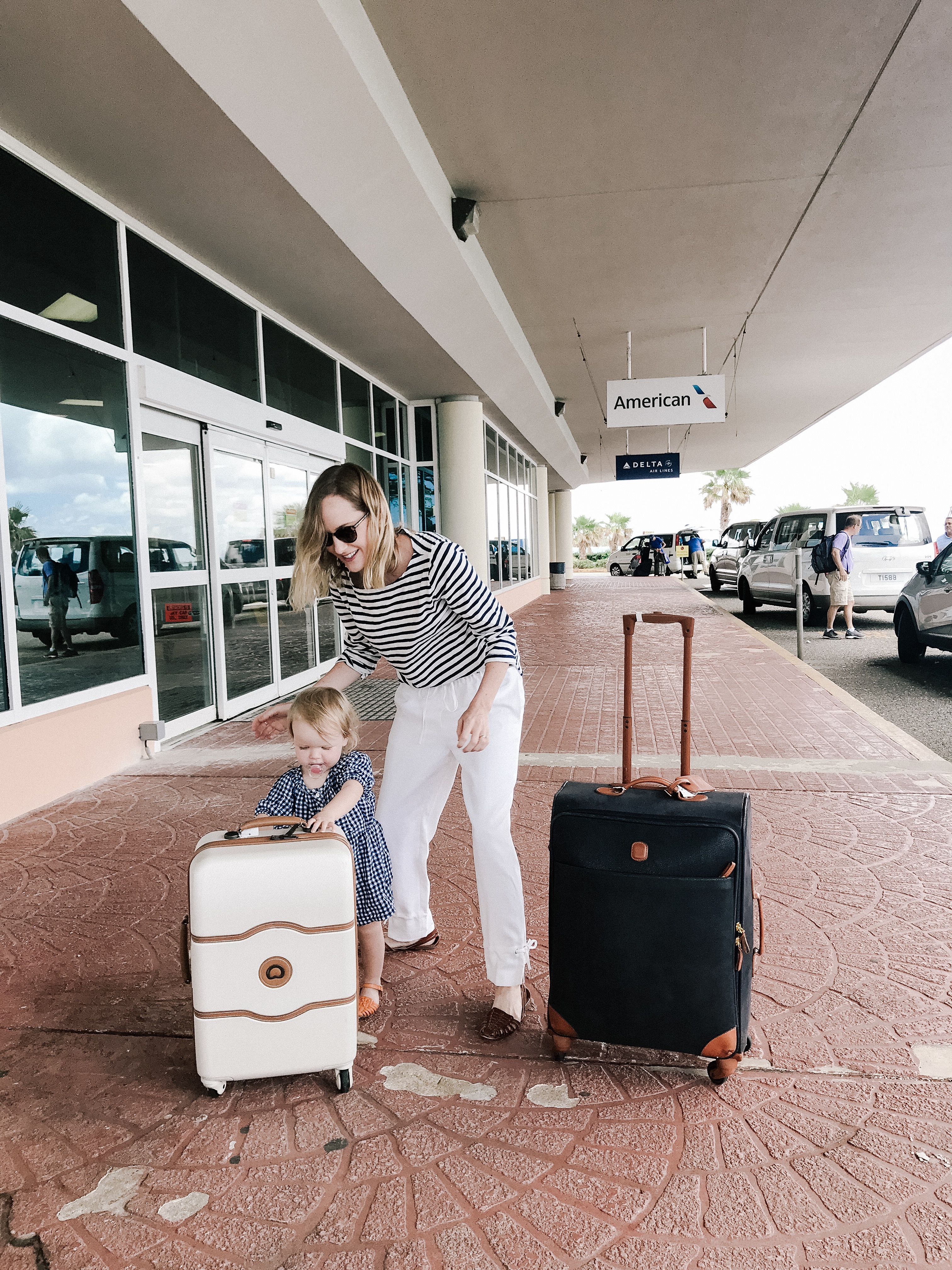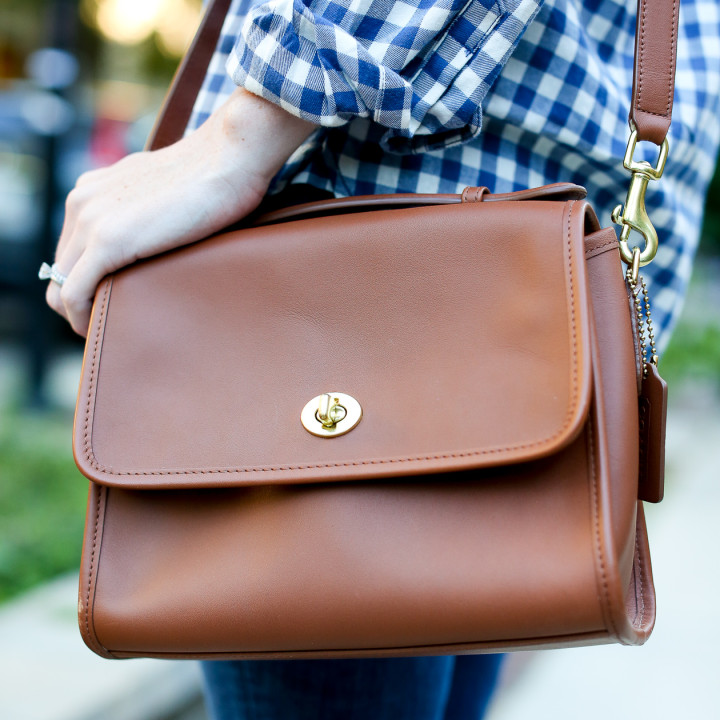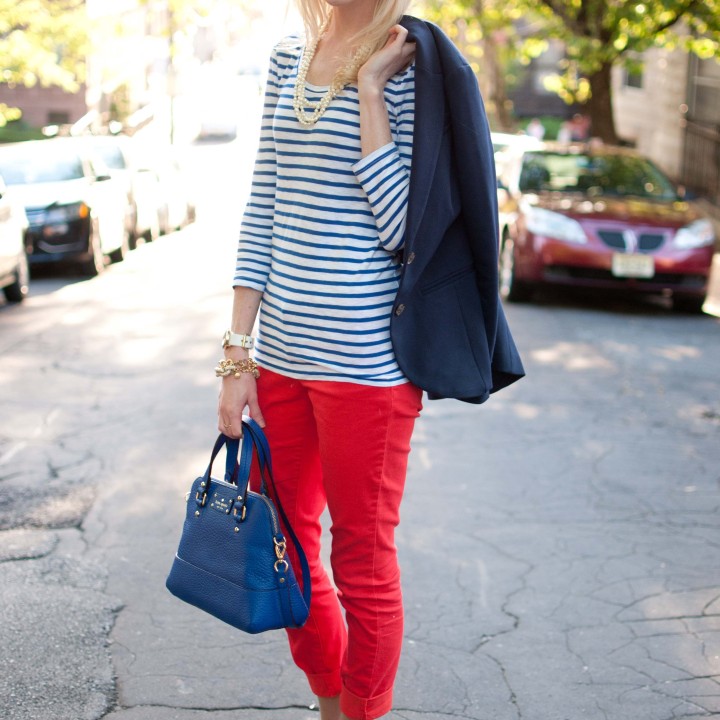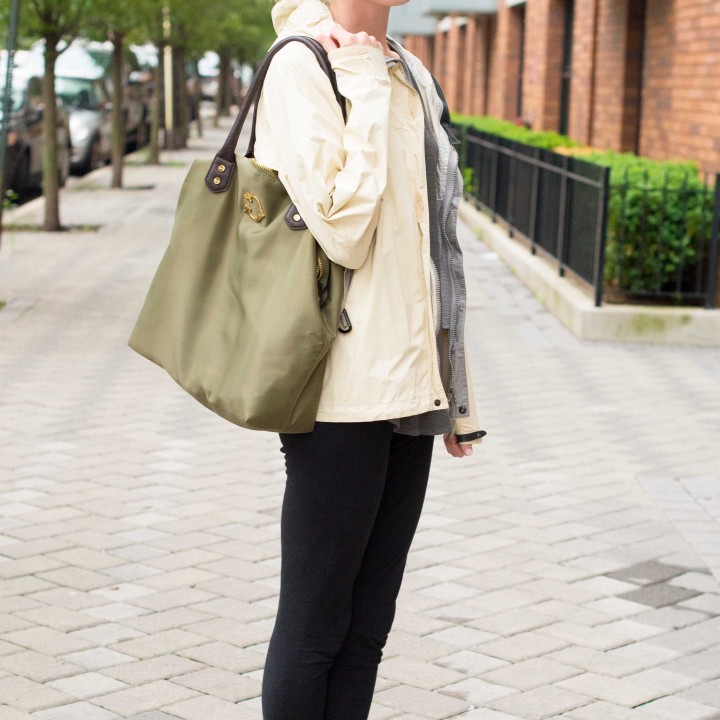^ Trying to let Emma “help” right after we left the Hamilton Princess in Bermuda! :)
White Drawstring Pants (Use code “SUMMERSTYLE.”) / Striped Tee (So soft! It’s also available at Nordstrom.) / Huarache Sandals / Emma’s Gingham Romper and Huarache Sandals / White Carry-On (But SO in love with this line of luggage!) / Navy Suitcase
Mitch here!
Today I’d like to talk about parenting since the job has grown significantly more complicated in the past few months. Emma can now run (away) and talk (back). She carries a baby doll around which is… unsettling. And her favorite game involves politely asking for a “Noodle treat” and then refusing Noodle the treat while running around the house laughing.
Emma Catherine. Stop running around the house this instant! You will give that dog her treat or you will go straight to your room and I MEAN IT!
So when I came across Michaeleen Doucleff’s article “How to Get Your Kids to Do Chores (Without Resenting it)” in a fit of extraordinary procrastination, I came to a strange realization:
Wait, I have a kid. This article pertains to me! Oh, god. I’m about to click on a parenting story from NPR.
Doucleff argues that a lot of parents (myself included) often discourage their toddlers from “helping out,” since–let’s face it–allowing a toddler to help unload the dishwasher, for example, will take a zillion times longer than just doing it on your own. (And you’ll need to frantically get anything that’s potentially dangerous out of the kid’s reach.) Far too often, though, we think they’re simply being needy toddlers or just adorably trying to mimic what they see us doing… when, in fact, it’s a very important desire to help. So instead of discouraging “helping,” we need to do everything we can to encourage it. Because it helps develop helpful kids. Kids who will eventually do their chores without hating you for it.
Reflecting on my parenting moves
Upon reading the article I realized that:
- Emma is DESPERATE to help me with every little thing I do around the house.
- I usually identify these behaviors as annoyances instead of teachable moments.
- I am overly confident as a parent.
So instead of just assuming that my uninformed parenting decisions will probably work out exceptionally well, I should take a step back and analyze stuff. Let’s go back to the dishwasher example:
- Whenever I’m doing the dishes, Emma gets up in my business, annoyingly handing me forks and spoons, slowing everything down.
- And I can’t even cook when she’s around as she’s desperate to be picked up and carried around the kitchen to inspect every step.
- She carries that baby doll around and tries to put it to bed all over the house–even in the kitchen drawers–because she likely sees bedtime as the quintessential part of the human experience.
Why is my first move to exclude her from helping? Am I so self-centered? Or do I realize the costs associated with a toddler screwing up all my little jobs so badly that I have to do them over again and honestly taking the garbage out was supposed to be my little break to get some fresh air and I don’t understand why I have to give that over to her too?!
I guess the fundamental point of the article and of this post is that Emma is watching and growing more rapidly than I can even imagine. She isn’t a baby in a bouncy seat anymore; she’s a kid, and she wants to be a part of everything. No, she can’t help me do everything. Sometimes I can’t let her pack and unpack the baby bag 50 times because we’ll miss our pediatrician appointment. Other times, I can’t let her push the stroller into oncoming traffic because… you know. And no, she can’t help paint that messed up wall by the front door because then I think we’d just have to knock it down and start over or something. But I can begin to see Emma’s desire to “help out” as just that: a desire to help out, and to grow and learn. It’s a good thing!
Also, if I play this right, I’m going to have a dedicated chore assistant in no time.
What do you think?













